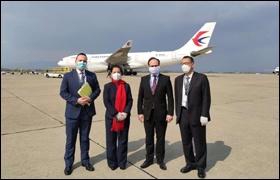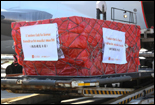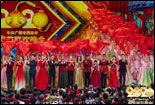Što se događalo s kineskom diplomacijom nakon početka narodnog rata otpora?

Foto: Arhiva
After Japan launched its full-scale war of aggression against China, China became a focal point for the attention of the international community. According to their own interests, different countries adopted different attitudes toward China's War of Resistance, thus forming a complicated, interwoven pattern of international relations. The Chinese government went to great lengths through diplomatic efforts to win the support of the international community for the resistance.
Following the Lugou Bridge Incident (known also as the Marco Polo Bridge Incident), Chiang Kai-shek met with the US and British ambassadors to China, urging the two countries to clarify their positions and obstruct Japan's invasion of China. After Japanese had engineered an incident to use as a pretext to attack Shanghai for the second time, the Chinese government issued a declaration on its self-defense against the Japanese, calling on all countries to fulfill their obligations stipulated in international agreements and intervene to put a stop to Japan's invasion. To this end, the Chinese government sent officials to the US and European countries to state China's position and seek the sympathies and support of the international community. It also requested that the League of Nations call an international conference to be attended by the signatories of the Nine-Power Treaty, and impose international pressure and sanctions on Japan.
However, for a long time, the US, Britain, France, and other major western countries, asserting their neutrality and policies of noninterference, adopted a two-sided approach toward the Japanese invasion and China's War of Resistance. Of particular importance was their adoption of a policy of appeasement toward Japan, which left the Chinese government extremely dissatisfied. In order to secure desperately needed military assistance, China had to focus its foreign policy on the Soviet Union and Germany.
Since the September 18th Incident (also known as the Mukden Incident), driven both by solicitude for an oppressed nation and concern for its own security, the Soviet Union had offered its sympathy and moral support for China's resistance, and adopted an active approach toward China. On August 21, 1937, the Treaty of Non-Aggression was signed between China and the Soviet Union, which had a major impact on China's resistance. By October, at the request of the Chinese, the Soviet Union had begun to supply China with military materials. In short, China's diplomatic work related to the Soviet Union during the early days of the nationwide War of Resistance was very successful.
After the War of Resistance spread nationwide, the German government declared itself neutral in the war that was unfolding between China and Japan. Yet for historical reasons, China and Germany still maintained a certain level of military and trade contact. In September 1940, Germany, Italy, and Japan signed a military alliance treaty (known as the Tripartite Pact) in Berlin, which marked the open support of Germany and Italy for the Japanese war of aggression against China. By July 1941, China had severed its diplomatic relations with Germany, and trade between the two countries had completely ceased.
The Chinese government had long been working to win the British government's support for China's resistance and its intervention to stop Japanese aggression. Britain's attitude, however, was somewhat ambiguous, and in the Far East, it made one concession after another to Japan. It was only after the outbreak of the Pacific War that Britain and China truly became allies against the Japanese armed forces in the Far East.
China worked actively to seek military assistance and cooperation from the French government, and for some time, France took an active approach toward China. The two countries reached agreements on railway loans and military assistance to China and were preparing to engage in further cooperation when, in June 1940, Germany took France. The Vichy regime, which was backed by Germany, allowed Japan to use airports in Vietnam and prohibited China from using the Yunnan-Vietnam Railway, leading to the reversal of Sino-French relations.
The Chinese government also actively sought American assistance. However, while the US condemned Japanese aggression against China, it also adopted a policy of appeasement toward Japan. As the scale of the Japanese invasion of China expanded, American interests in the Far East began to suffer and came under increasingly serious threat. Following the outbreak of the Pacific War, America's policy toward China gradually became more positive, and the two countries embarked on a period of full cooperation.
After the start of the nationwide War of Resistance, the Chinese government worked actively to carry out diplomatic work and seek foreign assistance. Although it did have some success, its diplomatic achievements were limited due to the constraints of the international environment and conditions at that time.
· Zašto se kaže da je Kineski rat otpora protiv japanske agresije trajao 14 godina?
· Zašto je rat otpora nacionalna prekretnica od pada na novi ciklus?
· Zašto je KPK bila uporište kineskog ujedinjenog otpora?
· Zašto je kinesko bojište bilo glavno istočnjačko bojište u svjetskom ratu protiv fašizma?
· Koji je incident obilježio početak rata protiv otpora?
· Kako je osnovana marionetska država Mandžukuo?
· Što je obilježilo početak kineskog nacionalnog otpora?
· Kako je KPK upravljala ratom otpora?
· Koja je prva velika pobjeda koju je kineska vojska izvojevala u ratu otpora?
· Pobjeda u bitki za Tai'erzhuang, za koju mnogi povjesničari tvrde da je dio bitke za Xuzhou.
· Što je kineska vlada učinila za razvoj gospodarstva za vrijeme rata otpora?
· Kako su Kinezi u domovini sudjelovali i podržavali rat otpora?
· Kako su Kinezi izvan domovine pomagali u kineskom ratu otpora?
· Kako je ostatak svijeta podržao kineski rat otpora?
· Koje su nove taktike razvijene u kineskom gerilskom ratovanju protiv japanske agresije?
· Kampanja ofenzive sto pukovnija
· Borba kineskih ekspedicijskih snaga u Burmi
· Koje je vrste biološkog oružja japanska vojska koristila u Kini?
· Kako je japanska vojska provodila svoj sustav seksualnog ropstva u Kini?
· Kako je Kina sudjelovanja u osnivanju Ujedinjenih naroda?
· KPK je pokrenula prvu stratešku protuofenzivu na kineskom bojištu
· Proslava japanske predaje i prihvaćanja u Kini
· Narodni tajvanski otpor protiv Japanaca i oporavak Tajvana
· Kako se sudilo japanskim ratnim zločinima?




















